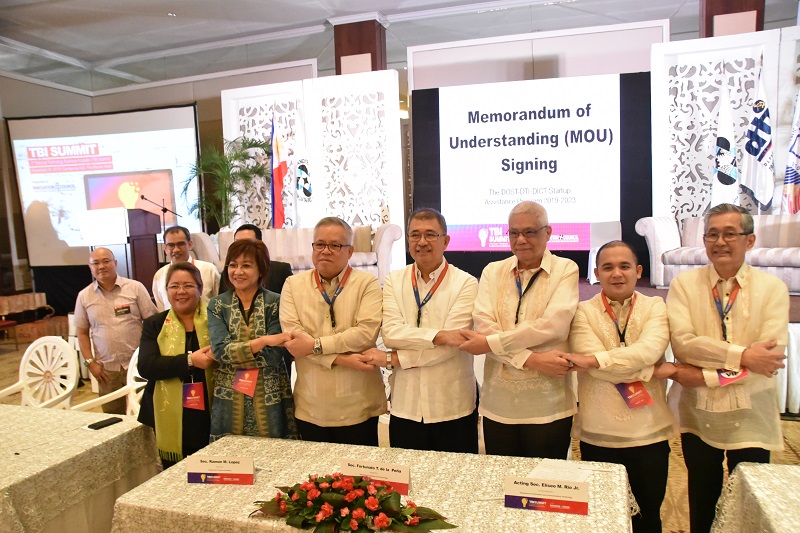
Three Philippine government agencies signed a Memorandum of Understanding (MoU) that will benefit Philippine start-ups in the next five years.
According to a recent report, the MoU aims to promote, assist and support Philippine start-ups, involving three government agencies, namely the Department of Trade and Industry (DTI), the Department of Information and Communications Technology (DICT), and the Department of Science and Technology (DOST).
The MoU binds the three departments to harness their programs and projects to create an ecosystem conducive for business start-ups.
The three government agencies will be implementing projects, events and/or endeavours by way of tie-ups, joint program activities, or cost matching in future events and activities.
It is based on the Action Plan of the Start-ups Assistance Program 2019-2023. It is initiated by the DOST-Philippine Council for Industry, Energy and Emerging Technology Research and Development (PCIEERD) and co-developed with the three aforementioned agencies as well as through partnerships with several contributors.
Major issues that will be addressed by the body over the five-year period are highlighted in the action plan. These issues are:
- The disconnect between government programs and private initiatives
- Limitations in terms of access to funds
- Policy issues such as the definitions and metrics to be applied to the start-up community
- The current mindset being risk-averse and the fear of failure
- The necessary skillset for start-ups to succeed.
There are four strategic priorities that the proposed action plan and road map recommends. These are collaboration, policy, promotion, and education.
Moreover, it suggests a line-up of activities for 2019 to 2023, which includes, but not limited to, establishing a working group and a Philippine Business Incubator Network.
They also plan to build an online information system for start-ups, benchmark ecosystems, and digital campaigns, organise conferences, and create a robust road map, among others.
The action plan revolves on a roadmap of activities that may lead to a much firmer and stronger Roadmap for Philippine Startups.
Hopefully, this will allow key partners and stakeholders to work together separately but cohesively for a stronger, inclusive and sustainable start-up ecosystem.
As reported, the three agencies are implementing a variety of programs, separately, for start-ups in the country at present.
The DICT, through the ICT Industry Development Bureau, implements the seedPH Program.
This program aims to boost the ICT ecosystem in the countryside and advocate the promotion and development of local ICT start-up businesses throughout the country.
The DTI, meanwhile, provide means for start-ups to scale up by giving them opportunities to participate in Outbound Business Missions and international pitching competitions through the Startup Ecosystem Development.
DOST, through the DOST-PCIEERD, provides financial assistance to Technology Business Incubators (TBIs)
The signing of the MoU happened during the second National Technology Business Incubator Summit.
The event aimed to feature the initiative and cooperation of both private and university-based incubators.
It also aimed to highlight the various start-up communities and organisation involved in enabling and supporting start-ups.
Initially, it was just small tea sessions among the TBIs and private accelerators. It was to advocate for enhanced connectivity in the start-up community.
From there, it grew to a 300-strong summit with the first one held in Cebu City in November 2017.
















